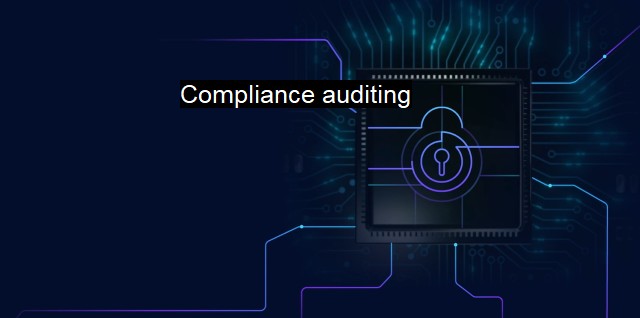What is Compliance auditing?
The Importance of Compliance Auditing in Cybersecurity: Ensuring Effective Security Controls and Mitigating Cyber Threats
Compliance auditing is a significant element in the cybersecurity landscape that aims to ensure various rules and regulations are adhered to, thereby boosting the security posture of an organization. It's an internal or external review of an organization's adherence to regulatory guidelines. Information security compliance comprises policies and procedures implemented by an organization to meet a specific regulatory standard. These regulations and standards differ based on industry, location, and the kind of data the organization retains and processes.In the

Compliance auditing FAQs
What is compliance auditing in relation to cybersecurity and antivirus?
Compliance auditing in relation to cybersecurity and antivirus involves assessing an organization's adherence to industry and regulatory standards related to information security and antivirus software usage. This evaluation ensures that the organization is following the necessary protocols and procedures to protect sensitive data from threats.What are the benefits of performing compliance auditing in cybersecurity and antivirus?
Performing compliance auditing in cybersecurity and antivirus helps organizations identify weaknesses and vulnerabilities in their security systems, processes, and software. It also ensures that their cybersecurity and antivirus practices meet regulatory requirements and industry standards, which helps to prevent data breaches, lawsuits, and other penalties. Compliance auditing also improves an organization's overall security posture and reduces its risk of being targeted by cybercriminals.What should be included in a compliance audit for cybersecurity and antivirus?
A compliance audit for cybersecurity and antivirus should include a review of the organization's security policies and procedures, network topology, hardware and software configurations, antivirus software usage, and vulnerability management processes. The audit should also evaluate user awareness and training programs, incident response plans, and disaster recovery procedures. The audit report should identify any gaps in the organization's security posture and provide recommendations for remediation.How often should compliance auditing for cybersecurity and antivirus be performed?
Compliance auditing for cybersecurity and antivirus should be performed on a regular basis. The frequency of the audits will depend on the organization's size, level of risk, and industry regulations. In most cases, compliance audits should be conducted annually or bi-annually. However, organizations may also choose to conduct audits after significant changes in technology or business operations, such as mergers or acquisitions.| | A | | | B | | | C | | | D | | | E | | | F | | | G | | | H | | | I | | | J | | | K | | | L | | | M | |
| | N | | | O | | | P | | | Q | | | R | | | S | | | T | | | U | | | V | | | W | | | X | | | Y | | | Z | |
| | 1 | | | 2 | | | 3 | | | 4 | | | 7 | | | 8 | | |||||||